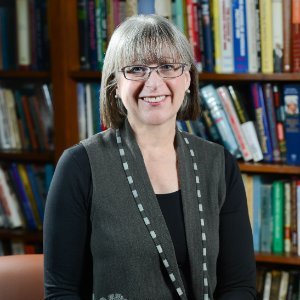 @KarenGrossEdu
@KarenGrossEdu Where Does Addressing Racism Start? Something to Think About As We Enter 2016 originally posted by: Karen Gross, Educational Consultant; Senior Counsel at Widmeyer Communications; Author on January 2, 2016
The recent piece I wrote on microaggressions (which I now term subtle discrimination) was met with seeming incredulity and plenty of anger. Just look at the comments. https://www.linkedin.com/pulse/understanding-microaggressions-seeing-invisible-karen-gross?trk=mp-reader-card. Perhaps this piece linked above will be more impactful, addressing how discrimination plays out with a child living in a "white" environment. The piece is thoughtful and wise.
When I was a college president, I was regularly reminded by our racially and ethnically diverse students that the people with the problems addressing and understanding race were not them. These students understood where they were and who they were -- individuals in a state with little diversity and a town with even less diversity. They understood the "game" and how to play by the rules of the college and the community -- even though "passing" produced and still produces considerable wear and tear on the psyche.
These students rightly observed that those who need to learn about racism and ethnic diversity are the rest of us -- those who are white and live in the "white" world. They are right. Learning about, dealing with, and reflecting carefully on race and ethnicity needs to start in all of our homes and communities, especially with those who perceive the world as colorblind or fail to see or realize the impact of discrimination when it is sitting before us.
So, for the benefit of all of our children, as Robert Putnam would say, let's look inward as we start 2016 and honestly assess our own "whiteness" and expand our capacity to see what those who in a minority within our community feel, experience and know. That would be a really good start to the year. And, the child in the article is fortunate to have such a caring and perceptive mother. She's spot-on.
One or two or three more thoughts. This reflection exercise is a worthwhile for another reason: those who are in the "minority" will actually become the "majority" in the US as the decades progress, and we would benefit from recognizing and understanding and appreciating the changing nature of our communities and our nation. And, for the record, very few can claim racial purity as Henry Louis Gates (among others) has pointed out. Just look beneath the skin at our DNA. That's a reality worth pondering too.
Finally, as much as we want to eliminate categories like race and ethnicity, they are not disappearing; despite the concept of the melting pot so eloquently described by Nathan Glazer, we have not melted together for the most part. Is that the real goal -- total assimilation or is recognition and respect for difference a better aim?
To learn more about Karen Gross click here!
The recent piece I wrote on microaggressions (which I now term subtle discrimination) was met with seeming incredulity and plenty of anger. Just look at the comments. https://www.linkedin.com/pulse/understanding-microaggressions-seeing-invisible-karen-gross?trk=mp-reader-card. Perhaps this piece linked above will be more impactful, addressing how discrimination plays out with a child living in a "white" environment. The piece is thoughtful and wise.
When I was a college president, I was regularly reminded by our racially and ethnically diverse students that the people with the problems addressing and understanding race were not them. These students understood where they were and who they were -- individuals in a state with little diversity and a town with even less diversity. They understood the "game" and how to play by the rules of the college and the community -- even though "passing" produced and still produces considerable wear and tear on the psyche.
These students rightly observed that those who need to learn about racism and ethnic diversity are the rest of us -- those who are white and live in the "white" world. They are right. Learning about, dealing with, and reflecting carefully on race and ethnicity needs to start in all of our homes and communities, especially with those who perceive the world as colorblind or fail to see or realize the impact of discrimination when it is sitting before us.
So, for the benefit of all of our children, as Robert Putnam would say, let's look inward as we start 2016 and honestly assess our own "whiteness" and expand our capacity to see what those who in a minority within our community feel, experience and know. That would be a really good start to the year. And, the child in the article is fortunate to have such a caring and perceptive mother. She's spot-on.
One or two or three more thoughts. This reflection exercise is a worthwhile for another reason: those who are in the "minority" will actually become the "majority" in the US as the decades progress, and we would benefit from recognizing and understanding and appreciating the changing nature of our communities and our nation. And, for the record, very few can claim racial purity as Henry Louis Gates (among others) has pointed out. Just look beneath the skin at our DNA. That's a reality worth pondering too.
Finally, as much as we want to eliminate categories like race and ethnicity, they are not disappearing; despite the concept of the melting pot so eloquently described by Nathan Glazer, we have not melted together for the most part. Is that the real goal -- total assimilation or is recognition and respect for difference a better aim?
To learn more about Karen Gross click here!